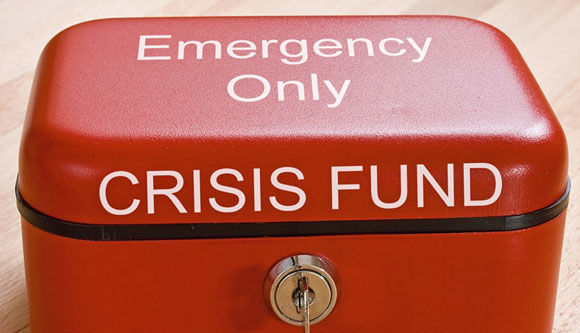Emergency Fund: Your Financial Cushion During Financial Disasters
By Jesi Bondoc, RFP®, CIS
Why do we need an emergency fund?
Financial emergencies can happen anytime and anywhere. They often happen when we least expect them and they can come in all shapes and sizes like sudden job loss, home and car repairs, medical emergencies, and natural disasters like major typhoons.
Experiencing these emergencies affects not only the physical and emotional aspect of life but they also leave a big dent on our finances. Establishing an emergency fund is the ideal solution for it serves as a financial cushion during an event that we deem as an emergency.
“By failing to prepare, you are preparing to fail.” – Benjamin Franklin
When to build an emergency fund?
The answer is NOW. It is more economical to prepare in the present for the sudden needs of the future rather than maintaining a wait and see attitude. The worst thing that you want to do during emergencies is to borrow money from other people or use your credit card which can create additional problems for you later on.
How to build an emergency fund?
Most financial planners recommend that you save at least six months to one year worth of your monthly expenses. One of the most common reasons why we want to establish an emergency fund is to prepare for a major change in our financial life like sudden job loss. It is irresponsible to think that your job is always secure and will always protect you from financial disasters. The recent report of high unemployment rate in Western countries is a proof that no one is totally protected from losing our major source of livelihood. Having an emergency fund equal to at least six months of our monthly expenses will help us meet our financial obligations while looking for another source of income.
Here are some tips in building your emergency fund:
- Compute your monthly expenses and decide how much to save. If you do not have a spending table that shows you how much you spend monthly, it is advisable that you prepare one right away. List down how much you spend monthly and decide how much of an emergency fund you need to save to get you through the financial emergencies that might happen in the future.
- Open a bank account for your emergency fund. It is recommended that you pick a secure place where you store your emergency fund and incidentally banks can provide you with such security. It is also helpful that your bank is accessible and has nationwide presence for emergencies can happen anytime and anywhere. Make sure that this account is specifically earmarked for emergency expenses and should not be mixed with your other needs. Lastly, it is not advisable to invest your emergency fund in highly aggressive instruments like stocks or pooled funds. Although these investment vehicles are liquid and can be withdrawn during business hours, the volatility in the equity market can potentially lead to a loss over the short term.
- Commit and save. Probably the most challenging part in building your emergency fund lies in getting the habit of saving for emergencies. If you are starting at zero cash in your emergency fund you might find it difficult and overwhelming in saving six months worth of your monthly expenses. It is then recommended that you start with small pockets of savings and gradually increase it periodically once you get the habit of saving. Use step goals like saving P500 every pay day for the first quarter then increase it to P1,000 every pay day for the next quarter and so on. The key here is to be consistent and resist the temptation of spending your emergency fund for other things that cannot be justified as emergencies. Remember mall wide sales and discounts are not emergencies!
- Look for other sources in addition to your regular income. Your officemate or friend may have borrowed a couple of hundreds or thousands of pesos from you last year and haven’t paid it yet. This might be the right time to collect and use the money to add to your emergency fund. Also, you can tap a portion of your bonuses to help in fast tracking your emergency fund. Let your creative and resourceful mind work in helping you boost your savings.
As a final note, let us all remember that emergencies and disasters are inevitable. Accept it or not they can happen to anyone and they ignore whatever status you have in life, they simply do not care. Having enough emergency fund may not take care of all the negative results of a disaster but it can surely help you in alleviating your financial stress so you can focus on things that really matter to you like your physical, spiritual, and emotional health.
Jesi Bondoc is a Registered Financial Planner, Certified Investment Solicitor and a Personal Finance Coach. He is currently the Director of My Wealth MD and Partners, Inc. specializing in investment advisory and oversight. He also conducts wealth planning seminars and workshops for various corporations in the Philippines. You can reach him at jj_bondoc@yahoo.com or jbondoc@mywealthmd.com and for more info about Registered Financial Planner, please visit www.rfp. ph or email info@rfp.ph




